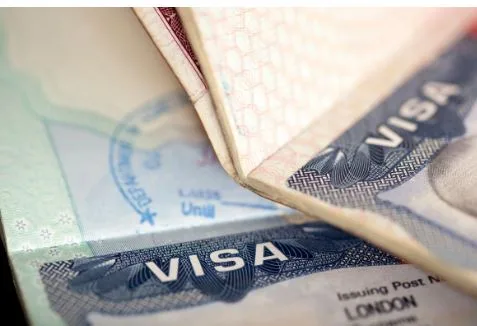UAE Residence Visa: A Complete, Practical Guide for Professionals, Founders, and Families
For entrepreneurs, skilled professionals, and internationally mobile families, the United Arab Emirates offers a rare mix of business-friendliness, lifestyle, and tax efficiency. But turning a short visit into a long-term base starts with picking the right UAE Residence Visa route—then executing with precision so you avoid delays, rework, and compliance traps.
What a Residence Visa Actually Unlocks
Most people think of residency purely as the right to stay, but in the UAE it’s your gateway to the daily essentials of life and business: Emirates ID (the backbone of most services), a local bank account, mobile plans, housing, utilities, school enrollment, and even smoother airport experiences. For founders and contractors, residency also streamlines client onboarding, invoicing, and corporate contracts. In short, residency is the keystone that makes everything else faster.
Core Pathways at a Glance
1) Employment (Company-Sponsored): A UAE employer sponsors your visa. This is the most linear route for full-time hires. The company manages much of the admin, but you’re tied to that employer’s sponsorship.
2) Company Formation (Your Own Sponsorship): Set up a free-zone or mainland company and use it to sponsor your visa. This path favors founders, consultants, and creators who want control, multi-activity licensing, and the ability to hire or pivot business lines.
3) Partner/Investor: Obtain residency as a shareholder/partner in a UAE entity. Suitable for those buying into an existing business or structuring a joint venture.
4) Family Sponsorship: Residents can typically sponsor spouses and children (and sometimes parents) if salary thresholds and housing criteria are met. Timing matters—issue the principal applicant’s visa first to avoid gaps.
5) Property-Linked Options: In certain circumstances, qualifying property ownership can support residency. Suitability depends on the emirate and current thresholds, which can evolve; always verify the latest criteria before relying on this route.
Free Zone vs. Mainland: How to Choose
Free Zones are popular for their speed, package pricing, remote setup options, and flexibility across service and commercial activities. Many also offer one-stop-shop centers for visas, licensing, and corporate services. If your clients are mostly international and you don’t need government tenders or onshore retail presence, a free zone is often the cleanest fit.
Mainland suits those who need onshore contracting, government projects, or physical retail on the open market. It can be marginally more involved for certain activities, but opens doors that free zones don’t by default.
Step-by-Step: What the Process Usually Looks Like
1) Entry Permit: Initial approval to start your residency process. Often this can be issued quite quickly once sponsor details are in order.
2) Status Change: Convert your status to resident, either in-country or via an out-and-in trip, depending on the case.
3) Medical Fitness Test: Standard health check at an approved center; it’s routine but mandatory.
4) Emirates ID Biometrics: Fingerprints and photos for your national ID. This ID becomes your everyday credential.
5) Visa Issuance: Final issuance (stamping or e-visa, depending on emirate/system) that confirms your residency.
Timelines and What Actually Affects Them
Published timelines are one thing; real timelines depend on three variables:
Documentation Quality: Missing attestations or mismatched details (e.g., name spellings across documents) cause most delays. Get clarity on attestations for your nationality before you start.
Sponsor Readiness: For employment cases, a well-organized HR team speeds things up. For company cases, ensure your corporate license, establishment card, and e-channels are properly set up before initiating visas.
Jurisdictional Nuance: Some free zones are incredibly fast for standard activities; others take longer for niche activities or additional approvals. Mainland timelines vary by activity and approvals involved.
Document Checklist That Saves You Weeks
Passport (validity buffer is essential), passport photos meeting UAE specs, education/professional certificates (attested as required), marriage and birth certificates for dependents (also attested), tenancy/utility documents if sponsoring family, and compliant health insurance where required. Keep digital scans that match the originals exactly. Label files consistently (e.g., SURNAME_Firstname_DocumentType_YYYYMMDD.pdf) for faster processing.
Cost Drivers Many Applicants Overlook
Licensing vs. Visa Costs: For company-sponsored routes, your corporate license and establishment card are separate from personal visa costs. Plan both.
Attestation and Translation: International attestation chains add time and money. Budget for embassy/legalization fees where relevant.
Insurance: Health insurance may be required before final issuance, and costs depend on age, coverage, and emirate norms.
Opportunity Cost: Poor sequencing (e.g., starting family sponsorship before your principal visa is issued) creates repeat trips and extra fees.
Banking: Set Expectations and Prepare Evidence
Opening a corporate account is smoother when your licensing activities, invoices, contracts, and proof of funds tell a consistent story. Keep company formation documents, lease agreements, utility bills, sample contracts, and a simple business plan ready. For freelancers/consultants, show pipeline contracts and past revenue history; for product businesses, be ready with supplier POs and shipping documents. Treat KYC like due diligence: completeness and clarity win.
Who Should Choose Which Route?
Full-Time Professionals: If you have a clean job offer from a reputable employer, the employment route is efficient and lower maintenance—perfect if you don’t need corporate control.
Consultants and Solo Founders: Company formation in a free zone is often ideal. It gives you invoice capability, IP ownership, and the freedom to add activities as you grow.
Portfolio Entrepreneurs and Investors: Partner/investor routes work well if you’re buying into, or scaling, existing entities. Ensure shareholder documentation is airtight.
Families: Prioritize the principal applicant’s residency, then sponsor dependents to minimize status gaps and school/lease disruptions.
Common Pitfalls (and How to Avoid Them)
1) Free-Zone–Activity Mismatch: Choose a jurisdiction whose business activity codes match what you actually do. Misalignment can slow visas and banking.
2) Sloppy Attestations: Incomplete legalization is the #1 time sink for family sponsorships and regulated professions. Confirm country-specific steps early.
3) Insurance Surprises: Assume you’ll need compliant health insurance before issuance; shop coverage early to avoid last-minute scrambles.
4) Renewal Blind Spots: Visa, Emirates ID, and license renewals may have different calendars. Track them all to avoid late fees.
5) Over-Optimized Timelines: Launch your process with some margin. Flights, school calendars, and lease renewals are easier if you’re not operating at the deadline.
Midpoint Perspective: Why Residency + Business Setup Often Beats Employment for Independent Professionals
For consultants, creators, and boutique agencies, company-sponsored residency unlocks client trust and contract flow without employer dependency. It also supports legitimate invoicing, VAT handling (if applicable), and hiring. If your plan is to build a regional client base, pairing a flexible license with residency in Dubai is often the most strategic foundation—particularly if your sales cycle involves demos, POCs, or retained advisory.
Family Sponsorship: Planning Around Real Life
For families, sequencing is everything. Issue the principal applicant’s visa first, then sponsor spouse and children. Align with school calendars and lease renewals to avoid mid-term moves. Check salary thresholds, tenancy requirements (Ejari/Tawtheeq where applicable), and make sure your documentation—especially marriage and birth certificates—is fully attested in advance. If you anticipate changing employers or company structures, complete dependents’ steps after your status is stable.
Regulated Professions and Edge Cases
Education and healthcare roles, certain engineering activities, and niche professional services may require special approvals or member cards from relevant authorities. This doesn’t make residency impossible—but it does mean you should start earlier, verify every requirement, and budget extra time for approvals. If your diploma carries inconsistencies (e.g., a maiden name vs. married name), get a notarized declaration or supporting documentation ready to reconcile records.
Practical Timeline Template
Week 1: Confirm route and jurisdiction; compile documents; initiate company setup or HR sponsorship; begin insurance quotes; schedule attestation where needed.
Week 2: Receive entry permit; book medical and biometrics; finish any pending attestations; finalize tenancy if sponsoring family.
Week 3: Complete medical and Emirates ID steps; submit for visa issuance; prepare banking pack (contracts, invoices, proof of funds).
Week 4: Receive visa; Emirates ID in progress/issued; begin corporate banking; start family sponsorship if applicable.
Realistically, some cases finish faster, and complex cases take longer. The difference is preparation.
How to Keep Compliance Simple After You Arrive
Track Expiries: Put visa, Emirates ID, license, and lease renewals on a shared calendar with reminders 90/60/30 days out.
Keep a Digital Vault: Store scans of everything in a secure drive with a standard naming scheme. It saves hours on renewals and bank interactions.
Insurance and HR Letters: Maintain updated salary letters (for family sponsorship thresholds), insurance certificates, and tenancy contracts.
Corporate Housekeeping: If you operate a company, keep your license activities aligned with actual services, update shareholder resolutions when ownership changes, and file amendments promptly.
Golden Rules for a Frictionless Process
1) Start with the End in Mind: Map your intended business model (solo consulting vs. team, local vs. global clients, potential government work) and choose the route that won’t box you in six months from now.
2) Over-Prepare Documents: If you’re not sure a certificate needs attestation, assume it does until told otherwise—then verify. Have translations ready from recognized providers if needed.
3) Sequence Smartly: Principal applicant first, dependents second. Don’t initiate dependents until your own status is certain.
4) Consider Banking Early: Ask banks up front what they expect from your sector (e.g., sample contracts, minimum balances) so you can prepare during the visa process, not after.
5) Avoid Jurisdiction Drift: Pick a free zone or mainland route aligned with your activity and scaling plan; switching jurisdictions later is possible but costs time and money.
FAQ: Fast Answers to Common Questions
How long is a residence visa valid? Typically 1–3 years depending on route and jurisdiction; renewals are routine when documentation and insurance remain compliant.
Can I sponsor my parents? Sometimes, subject to income thresholds and additional proof requirements. Expect stricter criteria than for spouse/children.
Do I need to be physically present? For biometrics and medical fitness, yes. Some company setups and preliminary steps can be done remotely, which shortens time spent on the ground.
Is health insurance mandatory? It depends on the emirate and case type, but you should plan for it to be required by issuance or shortly after. It’s best practice either way.
What if I change employers? Your sponsorship changes too. Time your switch to avoid gaps in status and coordinate visa cancellation/issuance windows carefully.
Case Snapshots: What “Good” Looks Like
The Solo Consultant: Registers a free-zone entity with a service activity that matches real work (e.g., technology advisory). Prepares a simple two-page service description and a sample contract for banking KYC. Starts insurance quotes in parallel with entry permit. Completes medical and biometrics in week two, receives visa in week three, opens a bank account with a clear pipeline of invoices in week four.
The Family Relocation: Principal applicant finalizes employment visa first, having pre-attested the marriage and birth certificates. Tenancy contract ready before dependent sponsorship. School enrollment planned to start after Emirates ID issuance to avoid mid-term paperwork.
The Investor: Buys into an existing UAE entity with clean corporate governance. Ensures the share transfer and MoA amendments are completed before starting residency steps, preventing sponsor inconsistencies that delay e-channels and establishment card issuance.
The UAE is engineered for speed — if you pick the right route, prepare documents thoroughly, and sequence steps intelligently. Employment is clean for full-time roles; company sponsorship maximizes autonomy for founders and consultants; partner/investor routes suit those scaling via equity. Families thrive when the principal applicant locks status first and documentation is fully attested. Whatever you choose, treat preparation like a project plan: timelines shrink, costs drop, and outcomes improve when every piece is ready before you push “go.” If you’re ready to take the next step with a mapped route and end-to-end support, you can apply for residence visa in the UAE with a clear checklist and predictable timeline.






